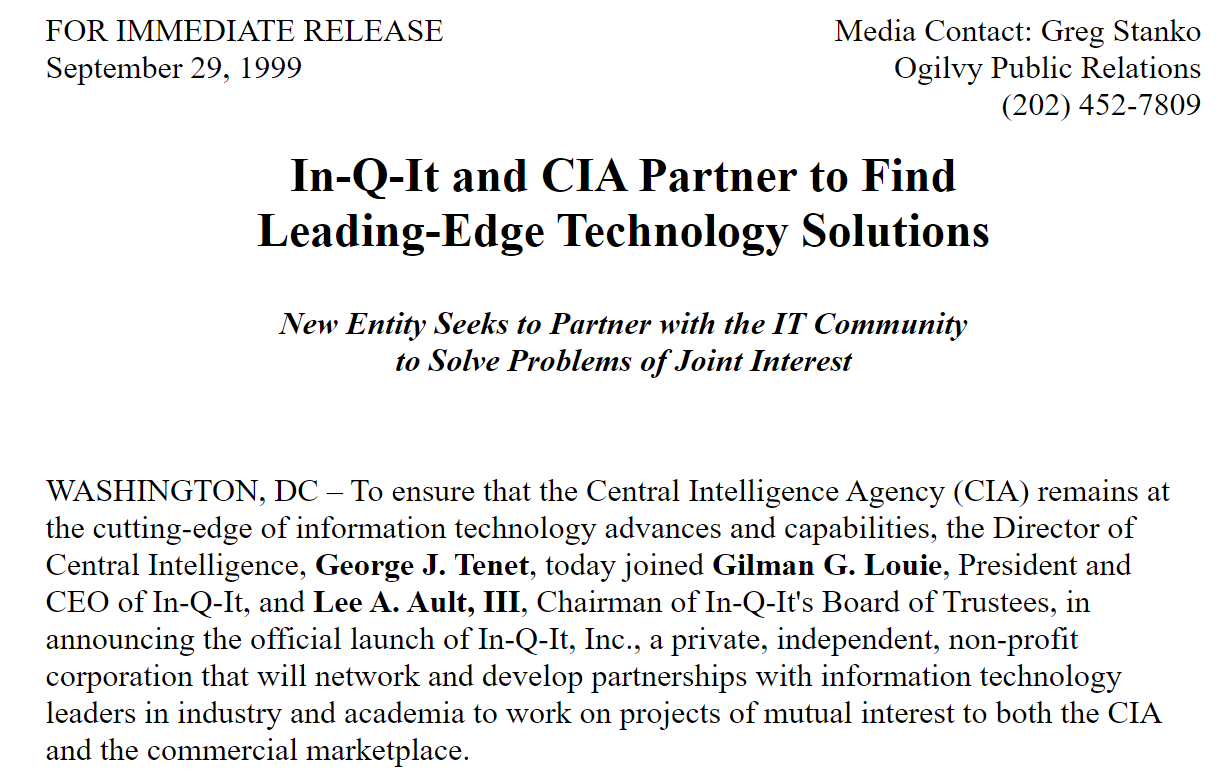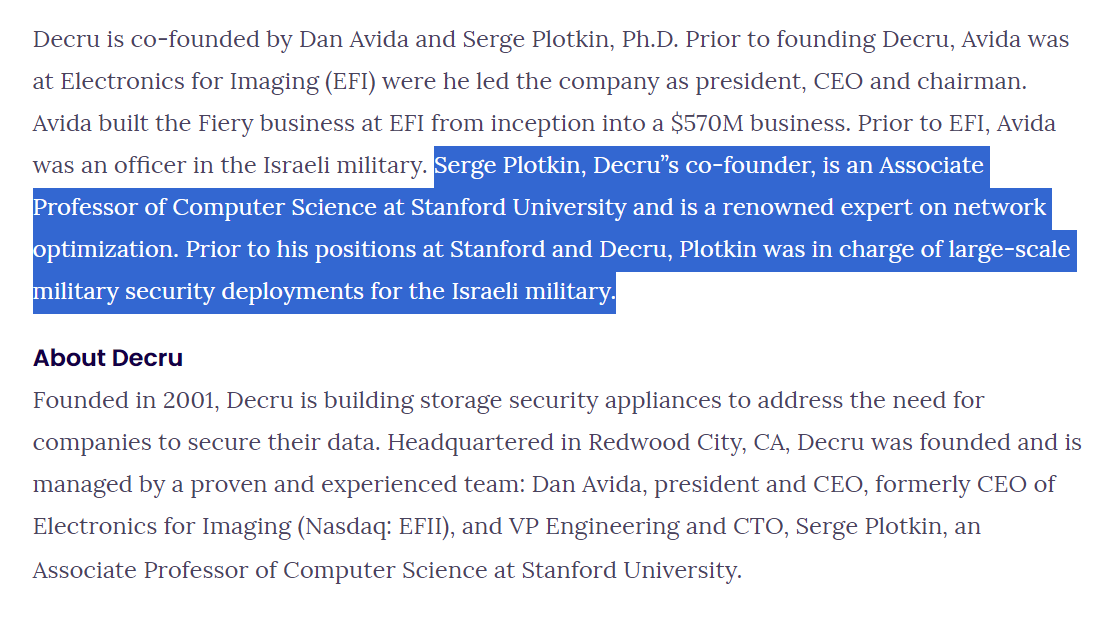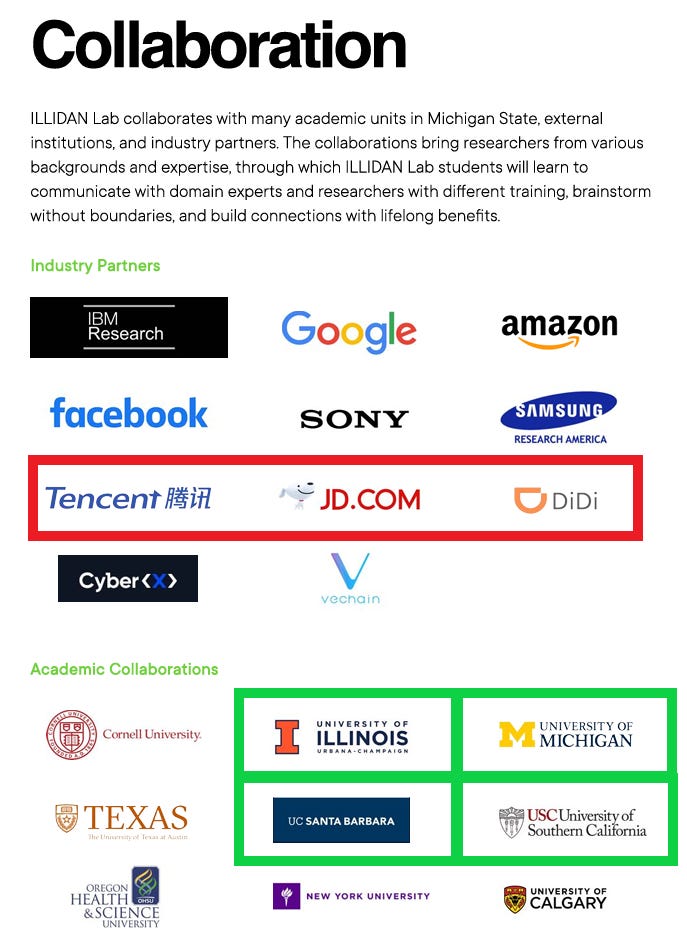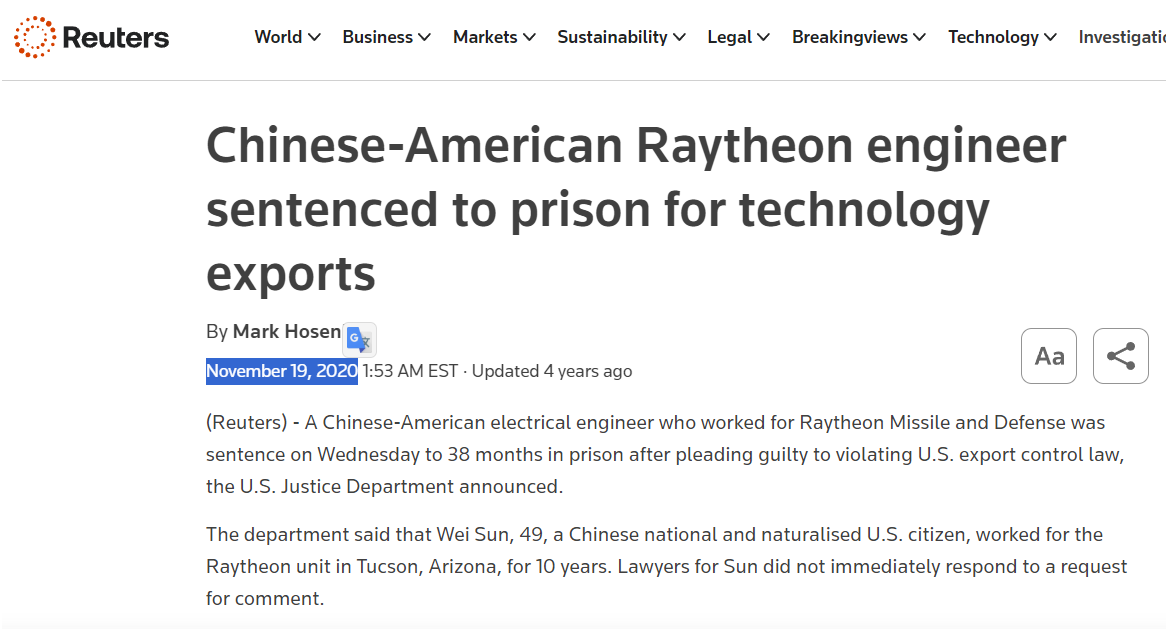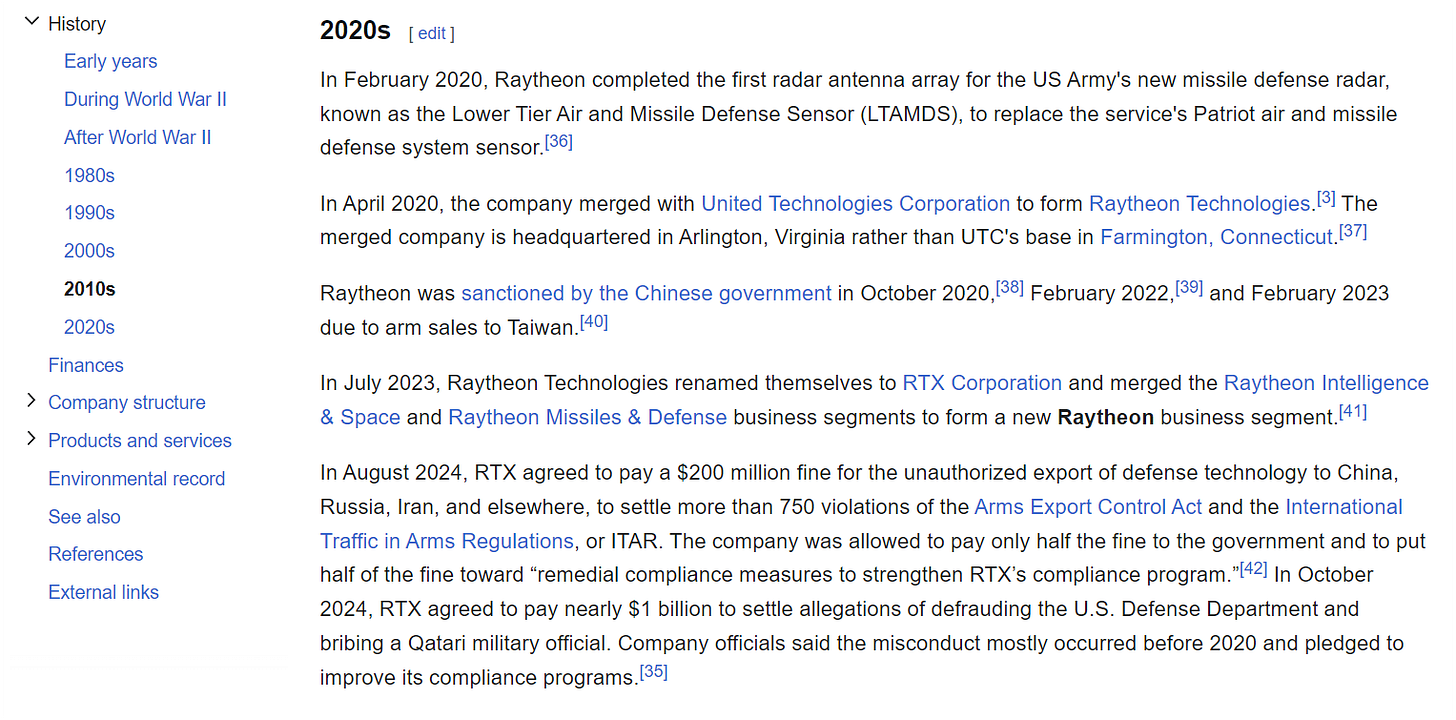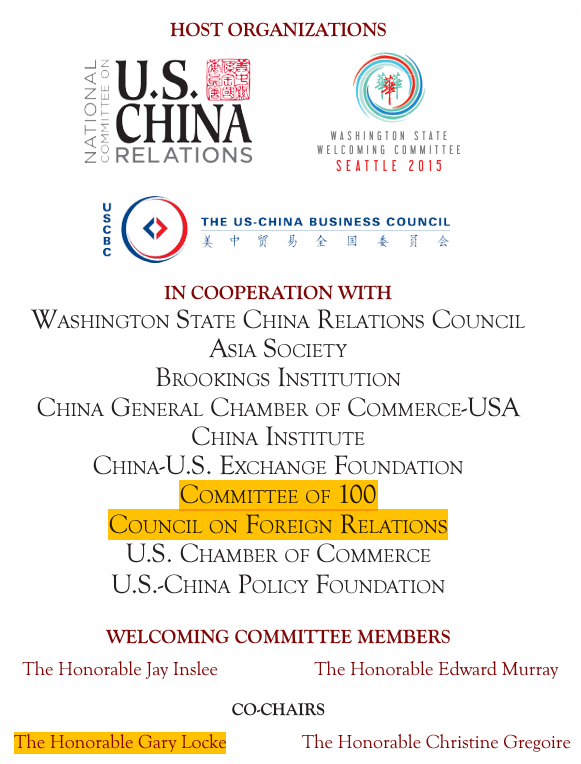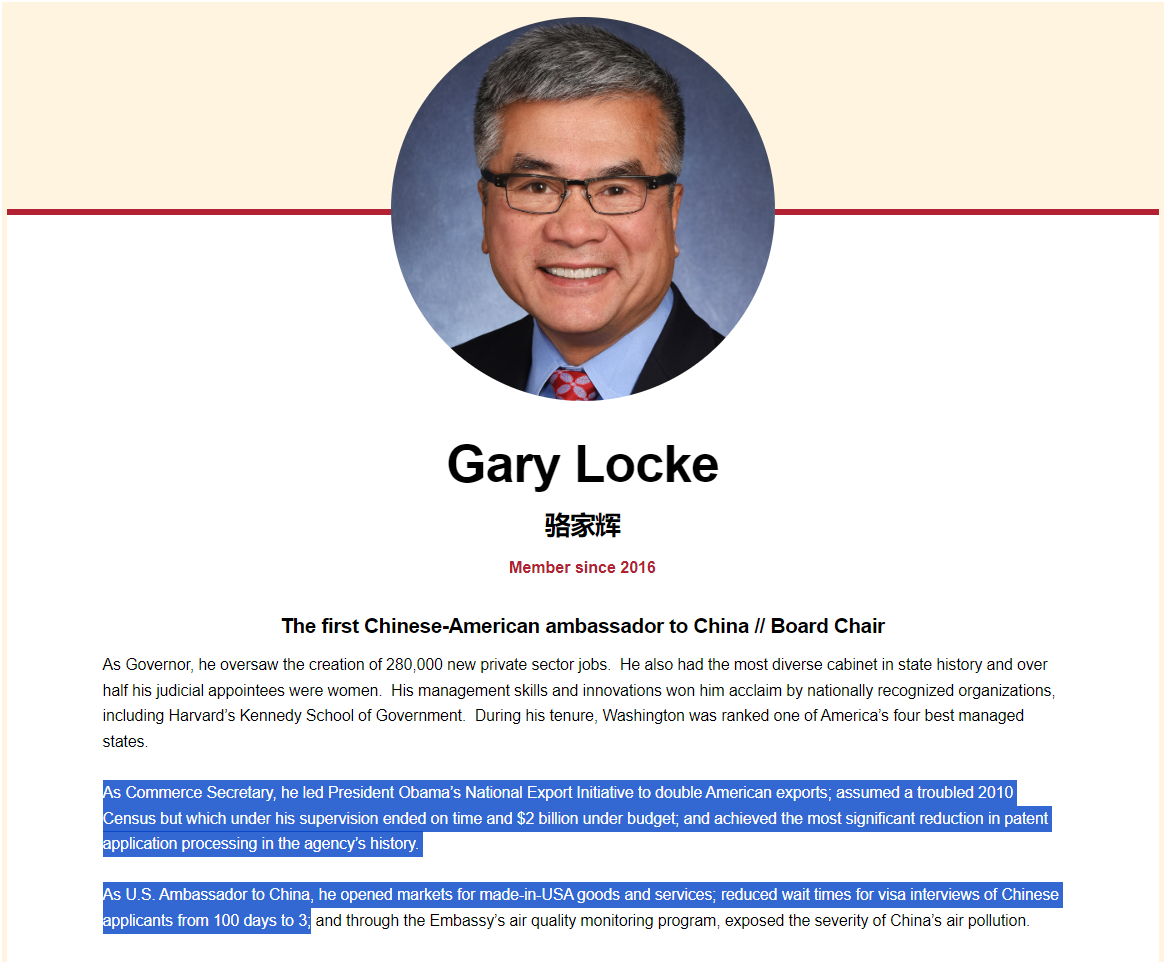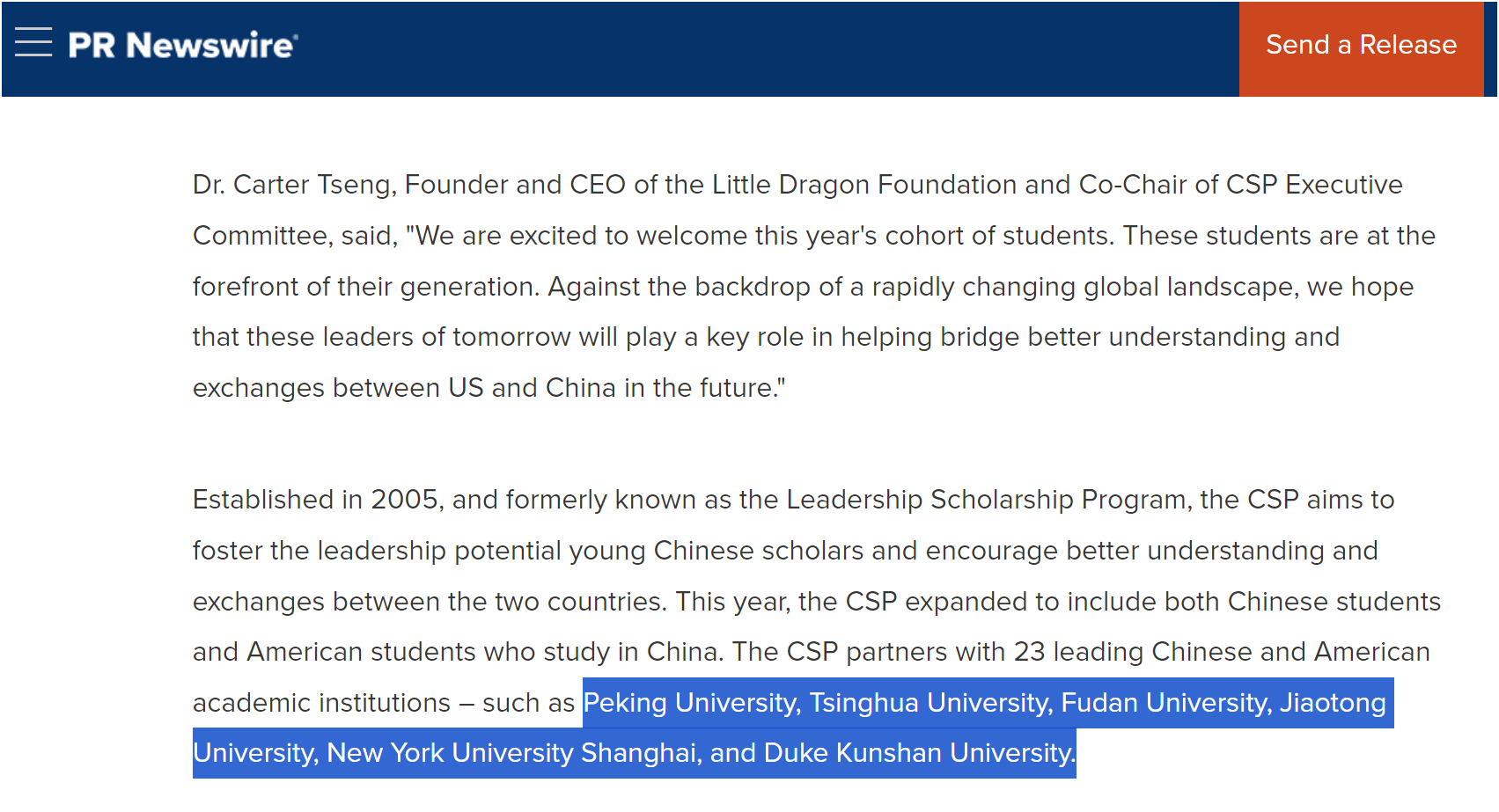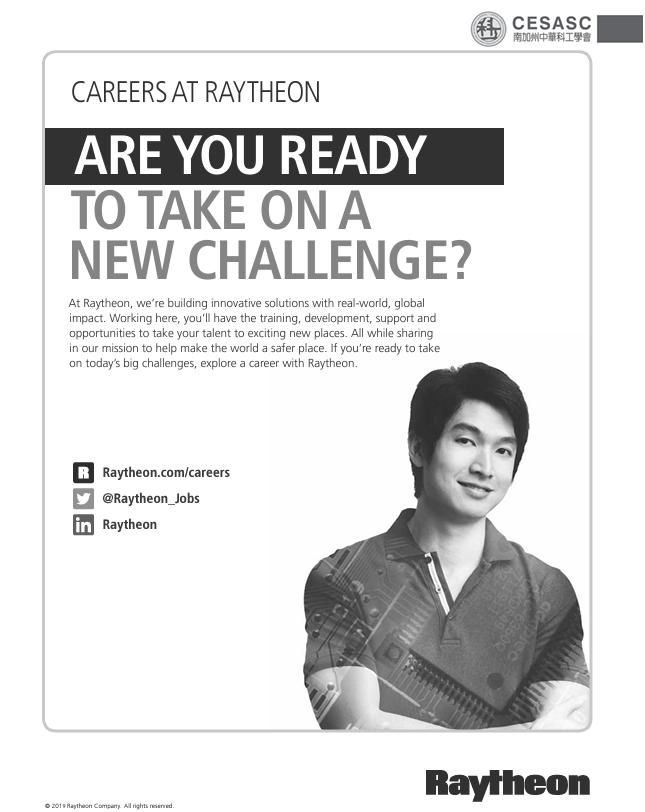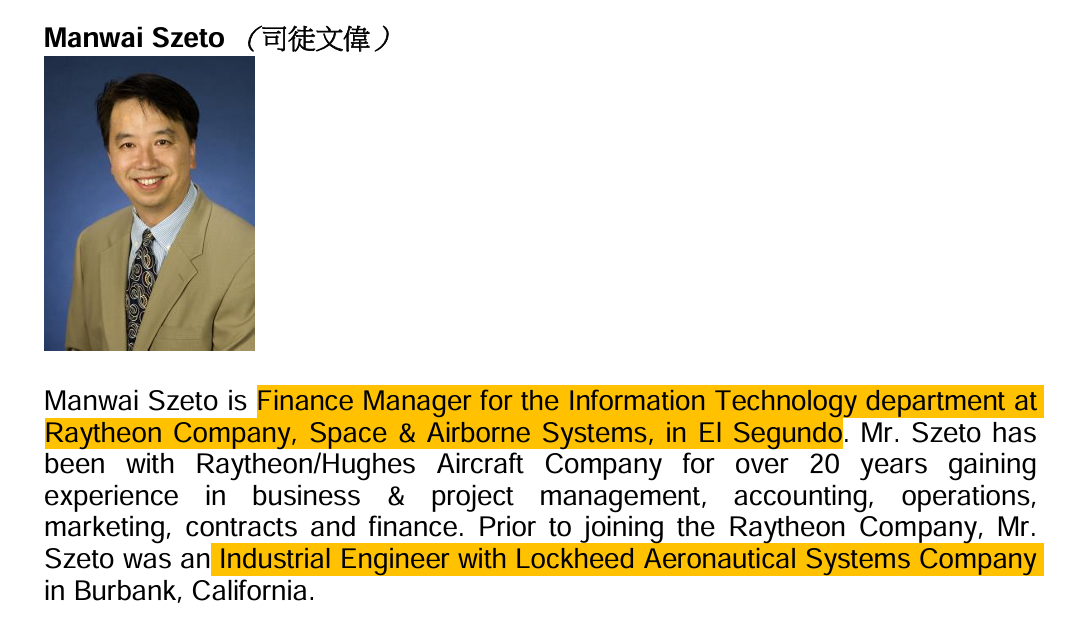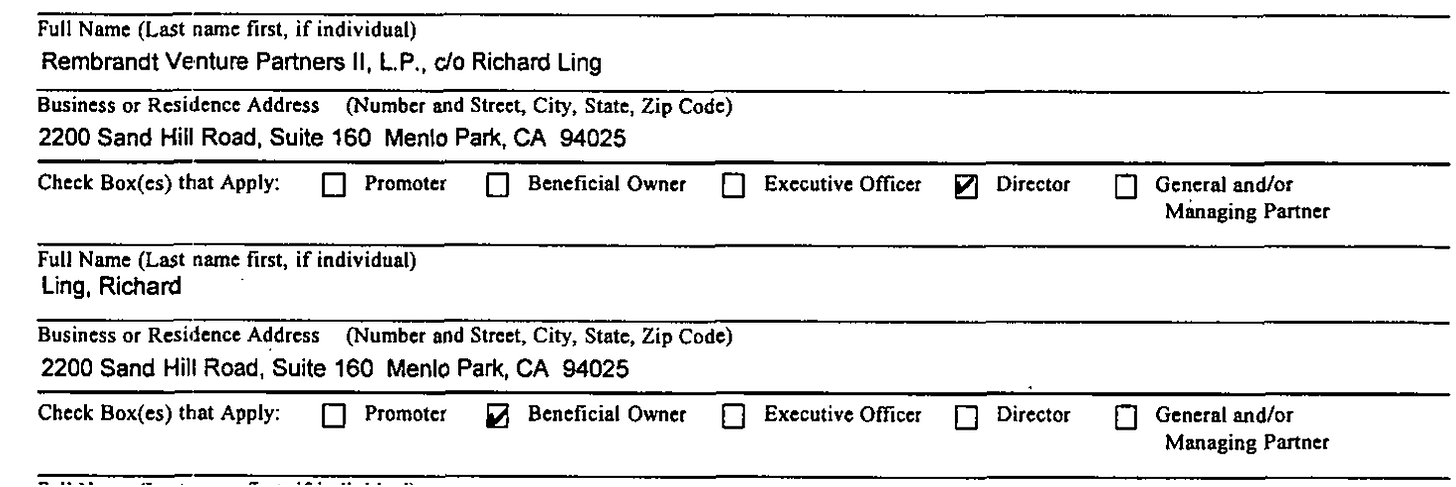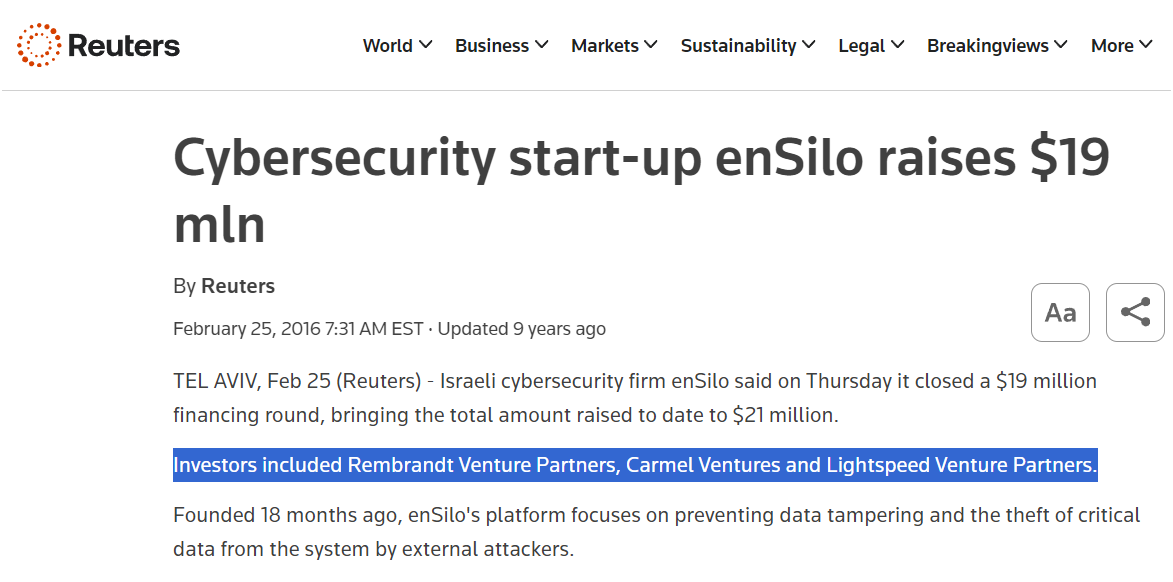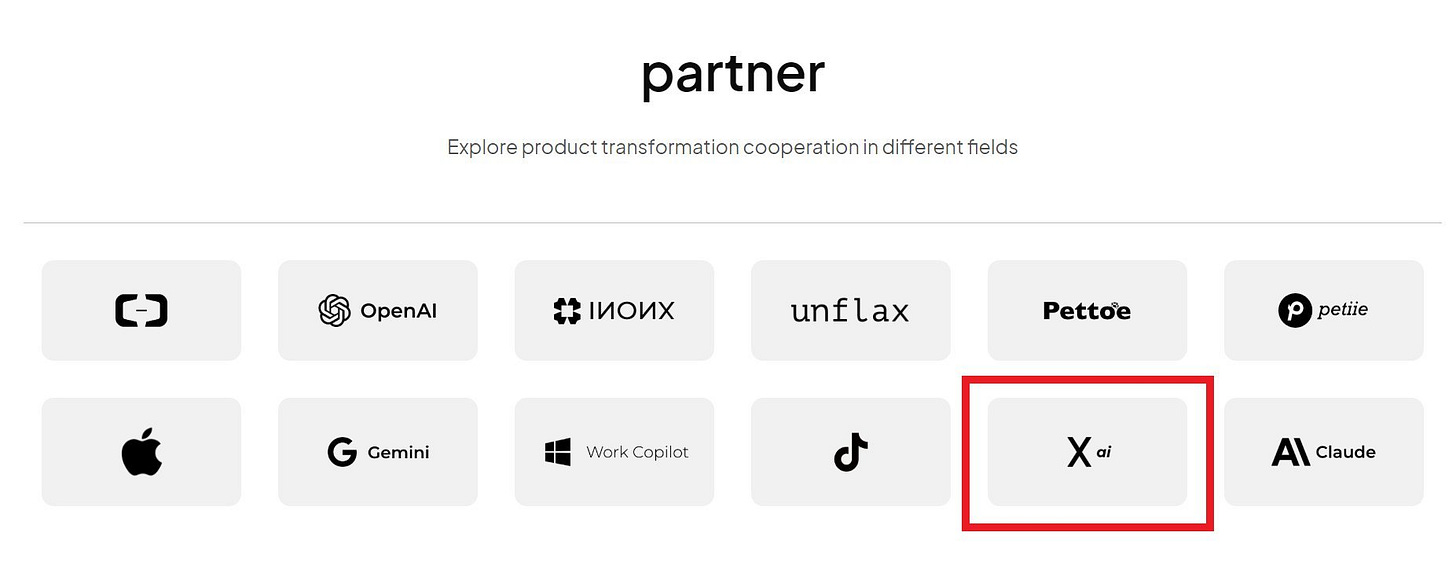Which Team is Which?
The CIA's taxpayer-funded "nonprofit" investment firm indirectly plays ball with the Chinese Academy of Sciences, but have CAS and In-Q-Tel become investment firms for a DOD-PLA closed-door alliance?
Tsinghua University is the nerve center of all things China, BRICS, and anything else counter- to Western influence.
The House Select Committee on the Strategic Competition between the United States and the Chinese Communist Party (Select Committee on the CCP) released a report in September 2024 titled, “CCP ON THE QUAD: How American Taxpayers and Universities Fund the CCP’s Advanced Military and Technological Research”.
The Select Committee on the CCP report focused heavily on three universities particularly: University of California at Berkeley, Tsinghua University, and Georgia Institute of Technology, or Georgia Tech.
But three other key universities to the target study, two of which are technically privately funded, were entirely overlooked in the report: Stanford University, University of Southern California (USC), and University of California-San Diego (UCSD).
All three of these schools received funding from U.S. government contractor Fulgent Genetics’ founder and CEO, and Fudan University in Shanghai trustee, Ming Hsieh. Beyond that, however, the CIA also sinks endless resources into southern California and Silicon Valley through its (technically) “nonprofit” venture capital firm, In-Q-Tel.
There have been growing questions and concerns over the autonomy of Hong Kong for the past decade, and in 2020, Secretary of State Mike Pompeo officially declared to Congress that Hong Kong no long functions as an autonomous region from the Mainland People’s Republic of China government.
Scores of In-Q-Tel affiliates and adjacent investment partners have grown into the uberwealthy class of America. This has in effect made In-Q-Tel, and therefore the C.I.A., a centralized “authority” of sorts as to who can and cannot exert influence over society at-large.
Examples of this abound such as Domino Data Lab, founded in 2013, which can be tracked back to both In-Q-Tel (the C.I.A.) and Mainland China capital (Sequoia Capital).
The Fudan-UC Center
On July 9, 2012, UCSD announced the agreement to open the Fudan-UC Center, a joint-institute between the University of California system — 10 public universities — and Fudan University in Shanghai, China.
The Fudan-UC Center was established with now-former Fudan University Vice President Lin Shangli and eight other high-ranking Fudan University faculty members.
The new Fudan-UC Center’s stated main objective was to connect every public university in California with Shanghai.
Lin is a member of the Communist Party of China and is the President and Vice Chairman of the University Council of the Communist Party “headquarters” of Renmin University.
“Professor LIN is a productive author of many publications: Domestic Intergovernmental Relations, Party Politics and Modernization, The Logic of Politics-The Principles of Marxist Political Science (co-authored), Studies in Contemporary Chinese Politics Formation, The Communist Party of China and State Building, and Contemporary Chinese Politics: Foundation and Development, and hundreds of academic papers.”
-National Academy of Development and Strategy, Renmin University, P.R.C.
Communism Taking Root in America
According to UCSD and the Fudan-UC Center in 2013, Lin was appointed to his position of Vice President of Fudan University at the exact time Fulgent Genetics CEO Ming Hsieh was joining the Board of Trustees at Fudan University in mid-2011.
The domain “china.ucsd.edu” is the website of UCSD’s “21st Century China Center” while “fudan-uc.ucsd.edu” correlates to the “Fudan-UC Center”
UCSD’s official address is listed as 9500 Gilman Dr., La Jolla, CA. This will be important again soon.
UCSD China Forum
In 2019, UCSD held a “China Forum” featuring prominent American names like Jake Sullivan and Avril Haines alongside a former PLA officers, a Committee of 100 member, and a leading professor of the Chinese Communist Party.
Kenneth Fong is on the Board of the UCSD China Center who hosts the annual event, and is a member of the Committee of 100.
Jisi Wang, who participated in the event, is a Communist Party professor who has taught at UC-Berkeley and the University of Michigan, Ann Arbor.
CIA Goes to Venture Capital-land
In-Q-Tel (IQT) was originally founded in part by Gilman Louie as the “non-profit” (the profits are simply reinvested per their charter) venture capital arm (State Department’s USAID and National Science Foundation already does this) explicitly to be an appendage of the CIA.
One of IQT’s earliest investments (as of 2003) included BGI “founder” Stephen Hsu and his company, SafeWeb.
Another early investment was Decru, a mass storage solution from Stanford professors, one of whom used to work for the Israeli military, and who had Greylock Partners join them on the 2002 funding round.
On the board of IQT since 2000 has been Howard E. Cox, a special limited partner of Greylock Partners who is now the Chairman of the Finance and Investment Committee of In-Q-Tel.
In 2002, the University of Michigan School of Business (now Ross School of Business, as I’ve covered before) put on a “Growth Capital Symposium,” where Howard Cox listed his simultaneous board memberships at Landacorp and In-Q-Tel.
Another longtime partner at Greylock is David Sze, who is also on the Committee of 100 with Fulgent Genetics founder-CEO Ming Hsieh.
Israeli Intelligence with Direct Line into Silicon Valley Venture Capital
Just weeks ago, Greylock hired a former Israeli intelligence officer into their firm, immediately deploying her back to Israel to conduct business for the In-Q-Tel associates of Greylock Partners.
Jonathan Choi, whom I’ve covered rather exhaustively to date, is on the Board of Trustees at Fudan University with U.S. government contractor Ming Hsieh, but Choi is also the Chairman of the Hong Kong, China and Israel Civil Technology Cooperation and Promotion Center (中国香港以色列民间科技合作及促进中心).
This is a quick video of Greylock’s featured portfolio from their website.
In 2018, Michael D. Griffin gave testimony before the Senate Armed Forces Subcommittee on Emerging Threats and Capabilities and mentioned an office on Sand Hill Road that he ran while COO of In-Q-Tel in the early 2000s.
In 2003, In-Q-Tel was named as an owner of a company called Soflinx Corporation in SEC filings, using the address “2440 Sand Hill Road” in Menlo Park, CA — the one-mile financial epicenter of Silicon Valley just another mile or so from Stanford University.
Greylock Partners offices are located within an actual stone’s-throw of In-Q-Tel’s 2440 Sand Hill address.
Another mile or so and a left turn takes you to In-Q-Tel’s official address.
Michael Crow
Dr. Michael Crow has been on the board of In-Q-Tel since its very early on and is now Chairman of the Board. In addition to this role, he is also the President of Arizona State University and was previously the Executive Vice Provost of Columbia University.
Arizona State sent one of their top young “Big Data” analytics researchers, Jiayu Zhou, to Michigan State in 2015, where In-Q-Tel’s SafeWeb and now-blacklisted BGI Genetics founder Stephen Hsu was Vice President of Research and Graduate Studies.
Other Universities Tap Into In-Q-Tel’s Resources
On In-Q-Tel’s very consistent Board of Trustees sits Elisabeth Paté-Cornell, the Chair of the Department of Management Science and Engineering at Stanford University.
Also sits Charles M. Vest, President Emeritus of Massachusetts Institute of Technology (MIT) and former Chairman of the President's Advisory Committee on the Redesign of the Space Station.
Finally is Anita K. Jones, a Professor of Computer Science at the University of Virginia.
MIT’s Sloan School of Business Management offers a dual degree program with Fudan University.
In-Q-Tel and Intelligence-Defense Contractors
Both IQT and UCSD have both nurtured a special relationship with Booz & Company, the original, parent company of Booz-Allen Hamilton, while fostering long-standing partnerships with notorious intelligence community contractors like Raytheon, Lockheed Martin, and others.
Also partnered with UCSD are multiple In-Q-Tel companies like Google and Facebook (Facebook is actually in Greylock’s portfolio, with founder Howard Cox on the In-Q-Tel Board) since at least 2006.
Raytheon owns the NSF-built GENI research network that’s been deployed for about two decades.
As recently as November of 2020, Reuters reported that a Chinese national, American citizen, and engineer at Raytheon named Wei Sun was sentenced to 38 months in prison for technology exports to China.
Raytheon has been sanctioned by the Chinese government in recent years for arms sale to Taiwan while also being penalized by the U.S. government for bribery to Qatar and illegal defense technology exports to China, Russia, and Iran.
It’s unclear whether the corporate penalties are related to the conviction of Wei Sun.
Raytheon maintains a considerable presence in China’s civil aviation industry despite the Chinese sanctions which were pointed very meticulously at Raytheon’s corporate arms in weaponry.
Yan Zheng
Yan Zheng is the Chief of Staff at In-Q-Tel and has been with the taxpayer-funded nonprofit VC firm since 2018.
Yan Zheng has been publishing in academic journals since his time at UC San Diego (UCSD) in 2004, and until moving to UC-Santa Barbara in 2005 to begin graduate school.
Zheng staged an actual coup on the UCSD chapter of the Institute of Electrical and Electronics Engineers (IEEE, sometimes “I3E”) in 2004. The next year he moved into the office of treasurer before heading to Santa Barbara and later government work.
Since departing UCSD in 2005, Yan Zheng has published steady streams of research that include work from UC-Santa Barbara, all while working in government in seemingly behind-the-scenes roles.
In-Q-Tel continued its involvement with UCSD when they invested in a miniaturized zoom lens for cameras through Rhevision in 2006.
Before In-Q-Tel, Zheng was a leader at Booz Allen Hamilton himself, working on DARPA projects.
More Folks at Booz
Edward Tse
Edward Tse is a Chinese strategy consultant with Booz & Co. based in China who holds degrees from MIT and UC-Berkeley and serves clients that include the Chinese government. He also founded and is CEO of Gao Feng Advisory Company with a contact listed in Shanghai.
Tom Gillespie
Tom Gillespie is a great example of the Booz-IQT convert. He was a strategy consultant at Booz Allen Hamilton before becoming a Managing Partner in In-Q-Tel’s investment team in 2005. He, too, is a Stanford graduate.
Booz Allen Hamilton also partners directly with In-Q-Tel’s portfolio company, Workera.
Booz Allen Hamilton Legal Woes
Like Raytheon, Booz Allen Hamilton has been under the U.S. investigatory magnifying glass for a number of years.
In 2017, AP reported the company was under a probe from the Justice Department fOr their questionable accounting practices.
In July of 2023, Booz Allen agreed to pay $377.45 Million with the Justice Department alleging:
“Booz Allen improperly allocated indirect costs associated with its commercial and international business to its government contracts and subcontracts that either had no relationship to those contracts and subcontracts or were allocated to those contracts and subcontracts in disproportionate amounts. The government further alleged that Booz Allen failed to disclose to the government the methods by which it accounted for costs supporting its commercial and international businesses.”
It’s unclear whether this settlement was connected to the probe announced back in June of 2017. The investigation touched nearly the entire intelligence community, presumably in tracking down the vast networks of money and equipment that had seemed to vanish for whatever reason.
Committee of 100 Is Everywhere
Nearly anyone in the who’s-who of tech or Chinese foreign relations has deep roots in Silicon Valley, whether through academia or finance.
Xi Xinping Attends C-100’s 2015 Dinner
At the 2018 C-100 Annual Conference, a healthy mixture of government officials and academia from both the U.S. and China met to exchange pleasantries and culture. Naturally amongst the crowd were the nation’s top legal minds and venture capital investors as well.
Jerry Yang, a Stanford University trustee, is also a member of the Committee of 100 and a board director at U.S.-restricted Lenovo and Alibaba.
These connections and social groups serve as a clever way to get “insider” information from the actual people pushing the buttons and pulling the levers...especially the movements that have the government’s magic In-Q-Tel wand to help.
Gary Locke
According to his Committee of 100 bio:
“...As Commerce Secretary, Gary Locke led President Obama’s National Export Initiative to double American exports...and achieved the most significant reduction in patent application processing in the agency’s history...
...As U.S. Ambassador to China, he opened markets for made-in-USA goods and services; reduced wait times for visa interviews of Chinese applicants from 100 days to 3.”
The C-100’s 2019 Gala revealed that the Committee of 100 maintains an open conduit for Mainland talent to work and learn in America, and that it extends in time well beyond the 2015 tax filing from before.
Those schools include Peking, Tsinghua, and Fudan universities.
Council on Foreign Relations and C-100
The C-100 has even managed to secure itself representation on the Council of Foreign Relations think tank.
For starters there’s X. Rick Niu and Dr. Cheng Li, both are members of both the Council on Foreign Relations and the C-100.
But there is also Jerry Yang who appeared on a 2019 task force of the CFR, the same year that the China Forum at UCSD took place, and which featured many of the same figures as were on the task force.
Dr. Carter Tseng
Dr. Carter Tseng, a director of the Committee of 100, just recently won a lifetime achievement award from CESASC, short for Chinese-American Engineers and Scientists Association of Southern California.
CESASC
CESASC as an organization was loaded with leaders who worked in U.S. aviation and aeronautics in 2017, so much to the point that Raytheon even advertised with the alumni group, but that’s not all.
CESASC have members at Raytheon and several who have crossed paths with the Jet Propulsion Laboratory (JPL) at Cal Tech.
Not only that, but CESASC also intersects Tsinghua University at multiple points in multiple ways, too!
So now, remember Dr. Carter Tseng from the Committee of 100!
LOOK AGAIN!👇👇👇
Ronnie Chan with the Committee of 100 has access to, and is probably the liaison for all of the group’s educational endeavors with Chinese Universities.
Ronnie Chan also has ties back into the same sphere of influence as the Bill and Melinda Gates Foundation.
Alumni Foundations
Tsinghua University in Venture Capital-land
Recall that UCSD is closely knit with both In-Q-Tel and 4 of the monster defense-intelligence-government contractors — Raytheon, Northrop Grumman, Lockheed Martin, Booz Allen Hamilton, and everything that comes with them.
In 2017, Tsinghua Education Foundation of North America (TEFNA) changed their address in tax filings to “2200 Sand Hill Road.”
Between 2017 and 2019, TEFNA gave $9.5 million to the Regents of UC and even chipped in $400,000 to Pittsburgh.
For 2020 to 2021, TEFNA’s Schedule G section of their Form 990s are unavailable through ProPublica.
Regents of the University of California is the organization who technically hosts the Fudan-UC center that connects all ten UC schools directly to Shanghai.
TEFNA also reported $24 million to the Schwarzman scholars program paid overseas, according to filings.
In 2022, Tsinghua affiliates got $440,000 ($24,000 in 2023), University of Pittsburgh received an additional $150,000, and Stanford got $50,000 from TEFNA.
University of Tennessee received almost $100,000 in 2023 from TEFNA.
TEFNA reported $91,000,000 in contributions to the group between 2019 and 2023.
2200 Sand Hill Road, Menlo Park
Rembrandt Ventures is located — or was located in 2008 — at 2200 Sand Hill Road just a few doors down from another firm who they have partnered with before - Lightspeed Ventures.
Richard Ling, a UC-Berkeley graduate who apparently managed this particular company is now listed with the Global Trust Group.
Rembrandt is perhaps most known for its investment into the file storage company Dropbox.
In 2017, Lightspeed partnered with Committee of 100 member and Greylock partner Jerry Chen to raise $100 million in D-round funding for a company called Blend.
Full Truck Alliance
Lightspeed made an early mark with the Chinese rideshare service DiDi, a partner of Michigan State University’s ILLIDAN analytics lab, but hit a homerun in November of 2021 with their IPO of Chinese company called Full Truck Alliance, a commercial freight platform like DiDi.
This IPO enlisted the help of someone with experience in this specifically, Wei Cai of Alibaba Group.
Israeli Cybersecurity Company enSilo
Rembrandt Venture Partners and Lightspeed Venture Partners joined together to raise $19 Million for an Israeli cybersecurity company called enSilo in early 2016.
C-100 Member Buys enSilo
In 2019, the company of which Ming Hsieh is a board member, Fortinet, bought the Israeli enSilo just as the same investors who landed the deal — Lightspeed and Rembrandt — were about to enter a NEW investment for Snorkel AI, but this new venture would eventually be alongside In-Q-Tel and Greylock.
Snorkel AI
According to Lightspeed Venture Partners, Snorkel’s technology has already been picked up by huge names like Google, Facebook, and DARPA.
Fortinet Owners Donate Obscene Amounts to the U.S.-China “Network”
Since the year reporting 2016, Ken and Michael Xie, the founders of Fortinet, have donated the following amounts to charities, according to IRS filings:
For the years (reporting) 2016-2019, the Xie Foundation gave Tsinghua entities $458,045
Committee of 100 received $107,500 between 2016 and 2023
$106,602,676 to Stanford University entities between 2016 and 2023
$2,670,390 to Harvard between 2020 and 2023
UC-Berkeley received $608,156 between reporting ‘21 and ‘23
UC-Santa Cruz made out with $100,000 in 2023
While Ming Hsieh dumped tens of millions of dollars into the University of Southern California, the Xie brothers poured over a hundred million into Stanford just in a few years, and TEFNA covered around $10 million to the University of California system, alone.
Fudan Alumni Funds Land in the Same Investments
The Fudan University Education Development Foundation, or FUEDF, reported its address at 9500 Gilman Drive, La Jolla, CA beginning in 2018 and after a missing 2017 filing.
2017 seems in this scenario to be the year things either hit a speedbump for many of the academic entities involved here, or simply shifted gears.
9500 Gilman Drive, La Jolla, CA is the address of UCSD — the headquarters of the Fudan-UC Center.
All Stars Investments
FUEDF reported investments into the Hong Kong All Stars Investments fund of about $3.3 million in 2018, about $4.8 million in 2019, about $5.2 million in 2020, almost $4 million in 2021, and about $3.8 million in each 2022 and 2023.
As I covered recently, All Stars Investment Fund empties right into Fudan University Board member Jonathan Choi’s actual neighborhood in Hong Kong.
On Full Truck’s monumental Full Truck Alliance offering, Lightspeed Venture Partners invested $83 million into the company in 2021.
Interestingly, Full Truck’s leadership includes both the former director of operations and chief financial officer of the “Chinese Google” search engine Baidu.
Baidu’s former President is now the Chair Professor of AI Science at Tsinghua University, and the founding Dean of Tsinghua Institute for AI Industry Research (AIR).
He is a member of the Committee of 100, Ya-Qin Zhang.
Ya-Qin Zhang was the person who employed Lionel Ni for a decade at Microsoft Research Asia after leaving Michigan State University fully in 2004.
A considerable chunk of the resources of both the Chinese science establishment and the American military-intelligence research industry are all being funneled into one primary focus:
Artificial Intelligence.
Keep one thing at the very front of mind when digesting all of this: there are NO NATIONAL BORDERS when dealing with artificial intelligence on networks of which our most formidable rivals — and even military allies — have unfettered access.
Bloomberg reported on stealth chips planted on American computers by Chinese manufacturers, to which Amazon disputed the report and the company, Elemental, conducted an independent review of a *sampling* of their products and concluded nothing nefarious had occurred.
Now imagine a back-door chip sending a constant stream of data to a global artificial intelligence with twenty years of data training.
Elemental is an In-Q-Tel portfolio company.
Has the C.I.A. been partnering with China all of this time to spy on Americans without violating domestic laws?
Boring Create
Whatever or whoever’s this “Boring Create” AI system that I recently stumbled across is, it checks way too many boxes and raises too many red flags for me to ignore it.
Are we training one master AI when we play online?
This website has already been disabled in the few days since posting it to X.
Covid-19
Why did In-Q-Tel invest in Metabiota once Hunter Biden’s cover was blown because of Ye Jianming and Patrick Ho getting found out?












